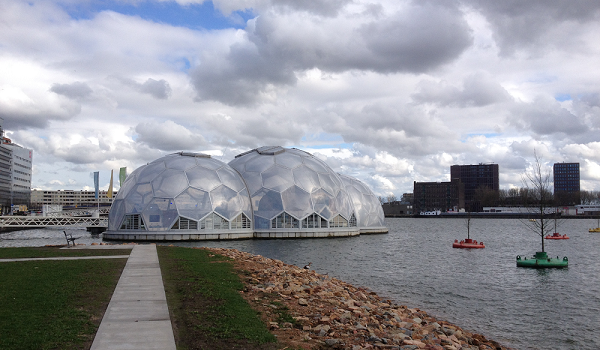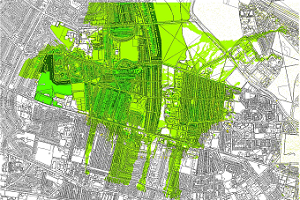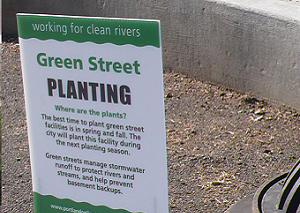
January 16, 2017, by Blue-Green team
Urban Flood Resilience Project blog launches!
The Urban Flood Resilience Research Project (2016-2019) officially kicked off with the release of our Inception Report in January 2017.
The project aims to enable the coordinated planning, design and operation of coupled urban water systems necessary to achieve transformative change in urban flood risk and water management.
Research focuses on three key themes, divided into five work packages (WP):
- Engineering design to enhance service delivery (WP1)
- Engineering development for resource use across the drought-flood spectrum (WP2 and WP3)
- Urban flood risk management at the heart of urban planning at multiple scales (WP4 and WP5)
The research team will investigate how planning, operation and organisation of existing and new urban water systems must be re-envisaged and transformed to: ensure satisfactory service delivery under flood, normal and drought condition states, and enhance and extend the useful lives of ageing grey assets by supplementing and integrating them with multi-functional Blue-Green infrastructure.
Work Package Objectives
WP1
Resilience under change (WP1) led by Scott Arthur (Heriot-Watt University) will develop urban flood and water management systems with the adaptive capacity essential to keep flood risk at acceptable levels however climate changes. WP1 will also produce a GIS-based tool to support comparative evaluation of the costs and benefits of alternative urban flood risk management solutions and the potential for integrated Blue/Green+Grey (B/G+G) systems to deliver affordable urban flood resilience at the city, regional and national scales.
WP2
Managing stormwater as a resource (WP2) led by Dick Fenner (University of Cambridge) will investigate how engineered systems can be better aligned with natural processes to: (a) realise the resource potential of all forms of urban water, with opportunities for storage, recovery and reuse being taken at every stage of the urban water cycle, and b) provide reliable quantities as required so stormwater management becomes increasingly inter-operable with other urban systems.
WP3
Interoperability with other systems (WP3) led by David Dawson (University of Leeds) will investigate the potential for employing inter-operable B/G+G infrastructure design solutions to increase flood resilience across multiple urban infrastructure systems. WP3 will also review the effectiveness and value capture of existing evaluation frameworks and metrics in the context of interoperable design and systemic resilience.
WP4
Citizens’ interactions with B/G+G infrastructure (WP4) led by Jessica Lamond (University of the West of England) will develop our understanding of how attitude and behaviour change amongst flood professionals and urban residents might be achieved. This aims to encourage co-development of B/G+G infrastructure that is more greatly appreciated over the longer-term. This should improve felt amenity benefits, behaviour and people’s willingness to get involved with voluntary maintenance.
WP5
Achieving urban flood resilience in practice (WP5) led by Colin Thorne (University of Nottingham) is based in two case study cities (Ebbsfleet and Newcastle). WP5 will inform, take-up and apply research in WPs1-4 to: a) establish how resilient urban flood risk management service delivery can be put at the heart of urban planning, and; b) how barriers to innovation can be overcome despite uncertainties in future urban climates, land-use, development and political leadership.
Future blog posts will be written by our research team detailing their research, recent outputs and thoughts on achieving urban flood resilience.
Blog post by Emily O’Donnell.
No comments yet, fill out a comment to be the first



Leave a Reply